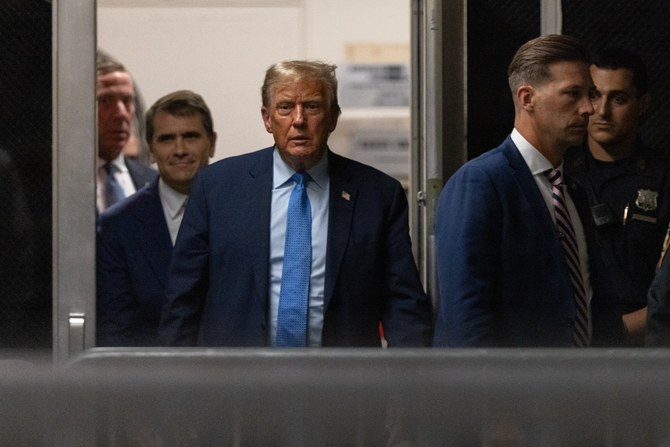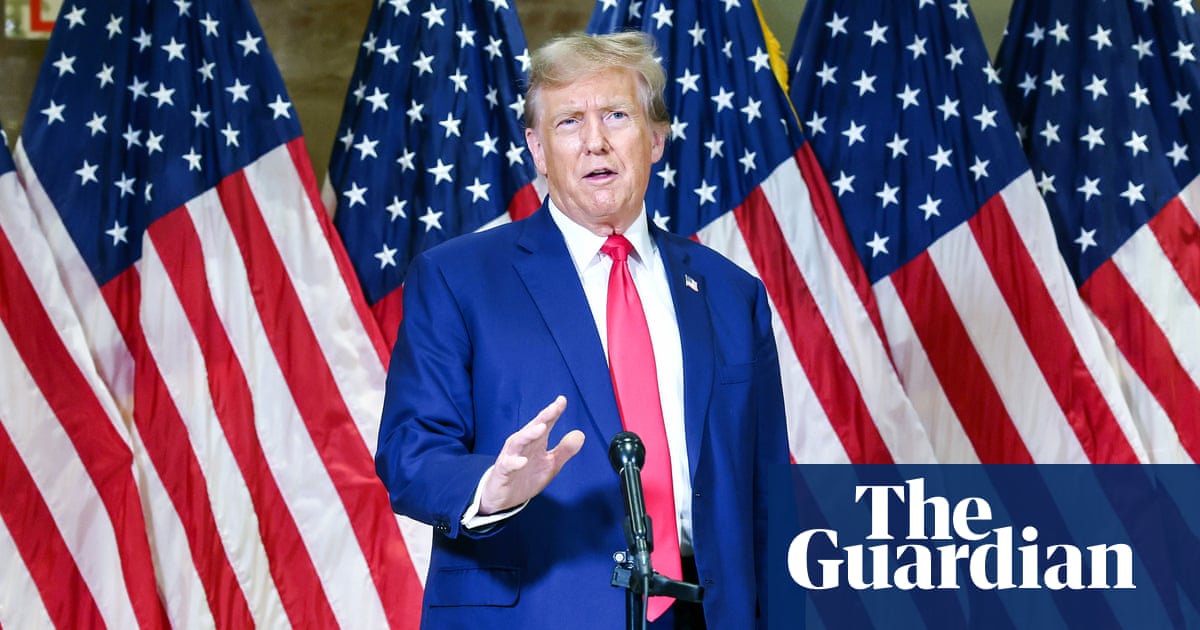
In the intricate web of law and politics, the principle of justice reigns supreme, transcending the boundaries of power and influence. No individual, regardless of their status or past achievements, is exempt from accountability under the law. The beginning of former President Donald Trump’s criminal trial in a Manhattan courtroom underscores this fundamental tenet, serving as a litmus test for the integrity of the legal system and the promise of impartiality.
The allegations against Trump are weighty. Prosecutors assert that he orchestrated “hush money” payments to an adult film star prior to the 2016 election, then attempted to conceal these transactions through falsified business records. As Trump stepped into the courtroom, he decried the trial as “election interference,” framing it as a ploy to disrupt his bid for the presidency in 2024, setting the stage for a trial fraught with political undertones.
Throughout the proceedings so far, Trump has maintained his innocence, pleading not guilty to the charges levied against him. Central to the trial are accusations that he instructed his former lawyer, Michael Cohen, to silence the adult film star with a $130,000 payment aimed at preventing the scandal from tarnishing his presidential campaign. Subsequently, Trump allegedly reimbursed Cohen through a series of payments disguised as legal fees, perpetuating a scheme to obfuscate the truth.
Yet, as the trial unfolds, the focus must remain steadfastly on the principles of law and justice, transcending partisan politics. The 12 jurors tasked with deciding Trump’s fate bear the weighty responsibility of impartiality. They are tasked with adjudicating the case solely on its merits and the evidence presented before them. Their capacity to render fair and unbiased judgments hinges not on political allegiance but on a steadfast commitment to upholding the rule of law.
The 12 jurors tasked with deciding Trump’s fate bear the weighty responsibility of impartiality
Dalia Al-Aqidi
However, amid the backdrop of political polarization, achieving actual impartiality in the judicial arena remains a formidable challenge. A CNN poll, conducted by SSRS and published on Friday, shows that many Americans feel former President Donald Trump is not being treated like an average criminal defendant in his ongoing trial. About a third of respondents believe he is being treated more harshly, while another third thinks he is being treated more leniently. Confidence in the jury’s ability to reach a fair verdict is low, with only 44 percent expressing trust in it doing so.
Regarding the charges against Trump, a majority of Americans now see them as irrelevant to his fitness for the presidency, even if proven to be true. Interestingly, three-quarters of Trump’s current supporters say they would stick with him even if he is convicted of a crime. However, about a quarter admit a conviction might cause them to reconsider.
The potential impact of a conviction on Trump’s political future is uncertain. Still, those who say they might reconsider their support tend to be younger, more racially diverse, more likely to have voted for Biden in 2024 and more moderate or independent in their political views.
Furthermore, the political affiliations of the presiding judge, Juan Merchan, have come under scrutiny, further complicating perceptions of fairness in the trial. Merchan’s modest political contributions to Democratic campaigns, including support for President Joe Biden, have ignited debates about his impartiality, with critics questioning whether his allegiances could sway the trial’s outcome.
However, defenders of the judiciary maintain that judges like Merchan are bound by the principles of fairness and impartiality, irrespective of their personal beliefs or political leanings. They argue that Merchan’s extensive experience and commitment to upholding the rule of law should serve as a testament to his integrity as a jurist, insulating him from accusations of bias.
The fundamental principle of justice demands that the former president be granted a fair trial
Dalia Al-Aqidi
Ultimately, the trial of a former president serves as a crucible for the American legal system, testing its resilience in the face of political turbulence and public scrutiny. The trial’s outcome will not only determine the fate of the accused, it will also shape the course of democracy itself, underscoring the delicate balance between judicial independence and the public perception of impartiality.
No matter where we stand on the political spectrum, whether we are ardent supporters of Trump or staunch opponents and whether we align ourselves with Biden or stand against him, the fundamental principle of justice demands that the former president be granted a fair trial. However, a significant question looms: How can we ensure fairness in the legal proceedings, particularly in a Democratic state like New York and when the presiding judge has supported the accused’s political rival?
This question underscores the inherent tension between the principles of democracy and the imperative of impartiality in the judiciary. On the one hand, democracy dictates that judges are appointed or elected based on the people’s will, reflecting the diverse range of political views within society. Yet, on the other, the judiciary is tasked with upholding the rule of law and ensuring that justice is administered without bias or favoritism. Critics argue that such affiliations may influence the judge’s decision-making process, leading to an outcome that is predetermined or perceived as unjust.
As the wheels of justice turn and the legal proceedings unfold, the nation watches with bated breath, awaiting a verdict that will reverberate through the annals of history. In the end, the principles of fairness, equity and justice must prevail, guiding the course of the trial and reaffirming the enduring strength of the rule of law in a democratic society.
Dalia Al-Aqidi is executive director at the American Center for Counter Extremism.











